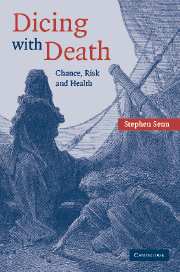Preface
Published online by Cambridge University Press: 11 August 2009
Summary
‘What's the most frequent word?’ asks Jessica. ‘Your number one. The same as it's always been at these affairs,’ replies the statistician, as if everyone knew: ‘death’.
Thomas Pynchon, Gravity's RainbowStatistics is dull but disreputable, prosaic but misleading. Statisticians are the auditors of research: negative and uncreative book-keepers. If mathematics is the handmaiden of science, statistics is its whore: all that scientists are looking for is a quick fix without the encumbrance of a meaningful relationship. Statisticians are second-class mathematicians, third-rate scientists and fourth-rate thinkers. They are the hyenas, jackals and vultures of the scientific ecology: picking over the bones and carcasses of the game that the big cats, the biologists, the physicists and the chemists, have brought down.
Statistics is a wonderful discipline. It has it all: mathematics and philosophy, analysis and empiricism, as well as applicability, relevance and the fascination of data. It demands clear thinking, good judgement and flair. Statisticians are engaged in an exhausting but exhilarating struggle with the biggest challenge that philosophy makes to science: how do we translate information into knowledge? Statistics tells us how to evaluate evidence, how to design experiments, how to turn data into decisions, how much credence should be given to whom to what and why, how to reckon chances and when to take them. Statistics deals with the very essence of the universe: chance and contingency are its discourse and statisticians know the vocabulary.
- Type
- Chapter
- Information
- Dicing with DeathChance, Risk and Health, pp. ix - xiPublisher: Cambridge University PressPrint publication year: 2003



